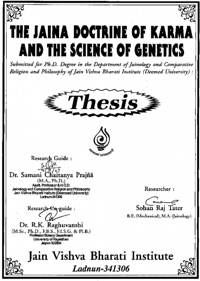Cell of the body is provided with a pocket of genetic material, the nucleus, which contains chromosomes. Normally all the individual of a species have fixed number of chromosomes in their nuclei. The characteristic group of chromosomes in a cell is spoken of its complement. Generally the somatic cells of animal and higher plants are diploid (i.e. they have two sets of chromosomes 2n) while their gametes, as a rule, are haploid as they contain only one set of chromosomes. The number of chromosomes present in gametes is referred to as haploid or genetic chromosome number or 'n'. In diploid organisms half of the chromosomes of a nucleus are contributed by the female gamete (maternal chromosome) in the sexual reproduction. The haploid set of chromosomes is also known as genome.
(a) Table - Chromosome number of some animals(b) Table - Chromosome number of some plants
S. No.
Name of animal
Diploid chromosome number (2n)
01.
Paramecium
30-40
02.
Hydra
32
03.
Round worm
2
04.
Solk worm
56
05.
House fly
12
06.
Fruit fly
8
07.
Honey bee
32, 16
08.
Mosquito
6
09.
Frog
26
10.
Chicken
78
11.
Pigeon
80
12.
Mouse
40
13.
Rabbit
44
14.
Common rat
42
15.
Guinea pig
64
16.
Dog
78
17.
Cat
38
18.
Horse
64
19.
Pig
40
20.
Goat
60
21.
Chimpanzee
48
22.
Man
46
S. No.
Name of plant
Diploid chromosome number (2n)
01.
Chlamydomonas
10, 12, 16 (halpoid ser)
02.
Bread mold
2
03.
Yellow pine
24
04.
Cabbage
18
05.
Radish
18
06.
Paraya
18
07.
Cotton
52
08.
Coffee
44
09.
Sunflower
34
10.
Potato
48
11.
Tomato
24
12.
Tobacco
48
13.
Banana
22, 44, 55, 77, 88
14.
Garden pea
14
15.
Bean
22
16.
Orange
18, 27, 36
17.
Apple
34, 51
18.
Indian corn
20
19.
Barley
14
20.
Bread wheat
42
21.
Rice
20
22.
Bajra
10, 20, 40
23.
Sugarcane
80
24.
Field bean
12
25.
Onion
16
 Prof. Dr. Sohan Raj Tater
Prof. Dr. Sohan Raj Tater
 Doctoral Thesis, JVBU
Doctoral Thesis, JVBU